Renee Giarrusso's Blog, page 4
January 2, 2025
Reflections, Resilience and Renewal
I hope you had an amazing Christmas and found time to rest, reset, and prepare for the new year.
As 2025 begins, it’s the perfect moment to reflect on the year that was and carry forward its lessons and growth. Too often, we finish a year, take a short break, and then jump straight back on the treadmill of doing. But the challenges and successes we experience are powerful opportunities for transformation—if we make time to review, release, and recalibrate.
A Year of Growth and ResilienceAt RG Dynamics, 2024 was an extraordinary year for me, personally and professionally. It was, without doubt, one of the most challenging yet rewarding years in my 18 years of business.
Diagnosed with aggressive breast cancer in April, I endured eight months of chemotherapy, surgery, and radiation. Today, I’m thrilled to share that I am cancer-free (yay!). While I continue three-weekly treatments until March, my focus is now on rebuilding my physical strength and overcoming the residual effects of treatment.
Through it all, I stayed fully present in my work—fuelled by my passion and purpose.
Despite the health challenges, I am deeply proud of what we achieved:
Being cancer free!!!Receiving our fourth USA award for my book, Gift MindsetGift Mindset, translated and published in VietnamBeing named 2024 Leadership Coach of the YearWorking with hundreds of leaders & teams in 12 different industriesRolling out our Limitless Leader’s program in 6 countriesWinning the 2024 Leadership Award from MBNBecoming a finalist in the Optimism and Wellbeing categoryThese awards are not just personal milestones; they reflect the consistent values and behaviours my team and I bring to leadership. It’s rewarding to see our contributions recognised and know we’re making a real difference.
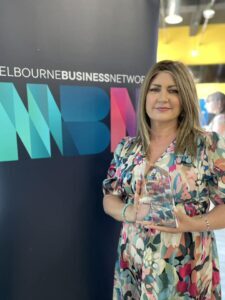
People often ask what my biggest lessons were this year. As I reflect from the beach and write this, several gifts stand out—gifts that helped me navigate and even grow through adversity.

I reframed my illness as something “happening for me” rather than “to me.” This perspective empowered me to view adversity as an opportunity for growth. Focusing on what the experience could teach me made me hopeful and energised—even on the hard days. My medical team noted that my optimism and mindset likely played a role in my healing.
Optimism & Gratitude:From the beginning, I believed I would come out the other side of this as a survivor. Rather than dwelling on what I’d lost, I stayed grateful for what I had. Each day, I focused on what I could do instead of what was temporarily out of reach, such as travel or evening events. This mindset kept me future-focused and grounded in what I could influence. Throughout and now, I have been so grateful for my amazing team.
Owning my Journey:While some advised me to step back from work, I knew continuing would be part of my healing. My work fuels me, and I chose to embrace my journey fully—bald head, wigs, turbans, and all (I have 58 turbans!). I even found joy in experimenting with new looks, reminding me that our challenges can also be opportunities to express creativity.

Staying connected to my purpose kept me anchored. My work—helping leaders and teams thrive—is a central part of who I am. While some clients felt uncomfortable working with someone battling cancer, most embraced my authenticity. I realised that being open and honest allowed me to attract those aligned with my values.
The Power of Support:The outpouring of love and support from my network was incredible. My natural inclination as a giver made receiving help difficult initially, but I’ve learned the importance of letting others show up for us. It’s a gift for both the giver and the receiver.
Celebrating the Small Wins:This year taught me the value of pausing to celebrate. Whether it was a full night’s sleep or getting through treatment without fainting, these small victories built a reservoir of positivity I could draw on during tougher times.
Life is unpredictable, and change is constant.
We can either resist or embrace it, allowing the lessons to shape who we are and who we’re becoming.
As we step into 2025, I encourage you to reflect on:
What lessons from 2024 will you carry forward?What will you let go of to make space for growth?I’d love to hear your thoughts.
Wishing you a limitless year of learning, growth, and being.
Lead to be Limitless.

December 9, 2024
65. Scale Up Your Business To Break Through The Growth Barrier with Jenny Stilwell
Are you ready to scale your business to the next level? Joining us in this latest episode is Jenny Stilwell – strategy advisor, business mentor and author. Jenny helps entrepreneurs take control of growth as they upscale from 7 to 8 figures by putting the right strategy, management tools and structure in place.
With extensive experience as a CEO, including leading a publicly listed company and founding three consultancies over the past three decades, Jenny deeply understands the complexities and opportunities her clients face as they scale their businesses into more valuable entities.
She is also the author of Small Business CEO and The 7% Club: How to Be One of the 7% of Businesses That Make It Beyond $2M in Turnover.
You can watch the podcast here, click the image below, or listen on your favourite platforms.
Key Takeaways:
Jenny’s philosophy is that your business should be an enabler of a better life, rather than something that tethers you to it.
To grow successfully, you need to transition from being a hands-on business owner to stepping into the CEO role. This shift allows you to focus on strategy instead of day-to-day operations.Having a clear understanding of profitability, margins, and cash flow empowers you to make better decisions and plan for sustainable growth.Avoid growth for growth’s sake. Be intentional with your scaling efforts. Ensure growth aligns with your personal goals and enhances your life, rather than adding unnecessary stress.Optimise your team. Evaluate your team’s roles, skillsets, and contributions to ensure you have the right people driving your business forward.Document and map core workflows to reduce bottlenecks, improve efficiency, and onboard team members effectively.Focus on the right clients. Analyse your customer base and prioritise high-value, profitable clients who align with your business objectives.
Contact Jenny Stilwell:
Enjoy This Podcast?
Leadership in changing times can be difficult, but you can adopt certain traits to get your team through it. You can also join mentorship programs to gain the skills you need.
Please post a review and share it! If you learned something by tuning into this podcast, do not hesitate to write a review and share it with your friends! The world needs more people with the drive and leadership qualities to make the world a better place. We need strong leadership skills and a learner’s attitude today more than ever.
 To listen to the podcast, select your favourite link below.
To listen to the podcast, select your favourite link below.
Apple: https://www.reneegiarrusso.com/PodcastOnApple
Spotify: https://www.reneegiarrusso.com/PodcastOnSpotify
Android: https://www.reneegiarrusso.com/PodcastOnAndroid
YouTube: https://www.youtube.com/@ReneeGiarrusso-RGDynamics
Have any questions? You can contact me through these platforms:
Company website
Instagram
Facebook
LinkedIn
To leading the future,

November 28, 2024
12 Questions To Reflect on 2024
Well, here we are at the end of another year!
An opportunity to reflect on and consider the year that was.
My question to you is, did you set an expectation early in the year, or did you face the year as it came?
This is a question I’ve asked many of my clients with varying responses.
How has your year been?
“Years end is neither an end nor a beginning but a going on, with all the wisdom that experience can instil in us.”
– Hal Borland
A calendar year is an approximation of the number of days of the earth’s orbital period; following the Gregorian calendar, this is 365 days. This is what we follow, and as much as I believe in regular checkpoints to reflect, recharge and reset in life as we near the year’s end, it’s a good opportunity to reflect and be future-ready to delve into the new year with 20/20 vision!
I’ve always loved the number twelve since I was a child. I’m not sure why I have always referred to 12 tips and ideas in workshops and in writing, such as in my white paper, The 12 Superpowers.
The number twelve carries religious and magical symbolism and generally represents perfection and entirety, interesting, I think.
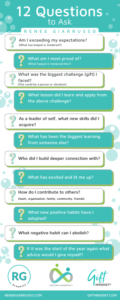 Reflecting on 2024…
Reflecting on 2024…On that note, I’ve devised 12 prompters to review the year that was. You can do this reflection individually or as a team; a great way to open up dialogue and share and promote human-centred leadership at work.
Take some time to reflect in order to refuel and reset for the new year – ask yourself the 12 questions. Note your responses and review them regularly.
What have been the Gifts you have unwrapped in 2024???
As always, we’d love to hear your thoughts and feedback.
Lead to be limitless…

November 17, 2024
Cognitive Bias or Connection – The Choice is Yours
Connection is a core human need; we are all wired to connect.
Connection is non-negotiable in the workplace, especially with increasing AI and a global skills shortage. Strong human relationships foster collaboration, innovation, and adaptability, ensuring teams leverage their skills while addressing gaps in expertise through knowledge sharing and mutual support.
Many factors stifle deep connective relationships and interactions, including cognitive bias.
In simple terms, bias can block us from being open to other people’s ideas, thoughts, experiences, and abilities. When we have a bias about anything, this means we have an unconscious or conscious tendency to favour or discriminate against certain individuals or groups based on personal preferences, stereotypes, or preconceived notions.
A few common ways it can manifest include:making everyday decisionshiring decisionspromotionscoachingsuccession planningdelegationtask assignmentsfeedbackA real-life example is that a leader may provide more opportunities to those who mirror their backgrounds, beliefs, or behaviours; this alone can hinder diversity and limit innovation.
Bias in leadership can also impact team morale, trust, and performance. It creates an unequal environment where certain individuals may feel undervalued or overlooked.
From my experience, for leaders (or anyone) to be effective, they must identify and address their biases, promoting fairness and inclusion. This involves self-reflection, seeking diverse perspectives, and making decisions based on objective criteria rather than assumptions. Cultivating awareness around bias will help you, as a leader, foster a more equitable and productive workplace.
The cost of negative bias is huge and can lead to disconnection by distorting perception, reinforcing stereotypes, and hindering open communication. Misjudgements and assumptions limit understanding, creating barriers to trust, collaboration, and inclusive relationships in the workplace.
It’s like opening a can of worms when we explore the diverse array of existing biases.
In this article, we will focus on some common ones that we expand on in our leadership and communication programs.

This is when we seek out information that reaffirms our existing beliefs. In doing so, we tend to ignore information that contradicts our beliefs, which can lead us toward untruths.
An example would be listening to news sources or social media that present stories that support our views or ideas.
This bias occurs when an initial impression of a person tends to influence our overall impression of them. It is also known as the “physical attractiveness stereotype” or the “what is beautiful is ‘good’ principle.”
Thinking that people who are good-looking are also smarter and maybe nicer than less attractive people is an example of this playing out.
The Self-Serving BiasThis is where we may tend to give ourselves credit for successes but tend to blame failures on outside causes when things go wrong.
For example, at work, we could be completing a successful project that we contribute to our hard work, but when things go the other way, we may think it’s bad luck or the fault of something or someone else outside us.
The Optimism BiasThis is where there may be a tendency to overestimate the likelihood that good things will happen to us while underestimating the probability that negative events will impact our lives.
In a nutshell, we may tend to be too optimistic for our own good.
An example could be not performance managing someone who needs it because we only see the good in that person.
Conformity BiasConformity bias occurs when we simply conform to the opinions and behaviours of others, even when these are against our own opinions, values, and personal beliefs.
An example of this bias may include verbally agreeing with others as much as we know we have an inner conflict about this. It can also take the form of not speaking up and sharing our ideas and thoughts as we are fearful of the response or rejection we may receive.
Gender BiasThis bias occurs when we hold stereotypical or negative attitudes towards people based on gender. This results in unequal opportunity and negative treatment of others, as well as hindering our ability to work with and socialise with others.
When we treat people differently based on their gender or make untrue assumptions about them, this is gender bias playing out.
Any type of bias exists in our minds and can exist any time of day and
anywhere, including in and out of the workplace.
Take the time to identify personal biases by reflecting on your attitudes, preferences, and beliefs and look at how past experiences, culture, and upbringing shape have shaped your views.
Ensure you seek different perspectives by engaging with people from different backgrounds, cultures, or opinions and listen to or read articles and viewpoints that challenge your beliefs.
Above all, pay attention to your reactions to others and your judgments. It is a continuous process rather than a one-time effort so self-access is ongoing.
I’d love to hear what came up for you.
Lead to be Limitless.

November 12, 2024
64. Human First, Digital Second: The Secret To Serve and Connect in a Digital Age with Jaquie Scammell
In this episode of the Limitless Leaders podcast, we're thrilled to have Jaquie Scammell, Founder and CEO of ServiceQ, an organisation that is dedicated to helping organisations take that leap from delivering ordinary service to extraordinary. ServiceQ help Service Leaders reimagine service in their business and encourage them to start with looking at themselves first.
Jaquie is a close friend and she works with a broad range of industries and sectors all seeking to strengthen the relationships with those they serve.
You can watch the podcast here, click the image below, or listen on your favourite platforms.
Key Take Aways:
Jaquie believes that wisdom is not from knowledge – it's from experiences of applying that knowledge and it's seen mostly when we allow our human qualities to be seen and get out of our head and drop into our heart.
Genuine human interactions, such as remembering a customer's name, provide businesses with a unique competitive edge.To navigate the future of work, particularly with AI's growing role, it's critical that service professionals focus on building emotional and social intelligence.Leaders often misinterpret others because they haven’t fully understood or managed their own emotions first.Humans are multi-dimensional – we’re not just bodies with brains. Leaders need to address all of these dimensions to truly support their teams.Delivering extraordinary service begins with self-awareness and a commitment to personal growth.As leaders, we need to slow down, reflect, and take time to deeply understand ourselves, so that we not only create the right conditions for others but also embody the values and actions we promote.The shift from traditional, fast-paced leadership to a more mindful, reflective approach is part of the natural evolution in the workplace.Contact Jaquie Scammell:
Enjoy This Podcast?
Leadership in changing times can be difficult, but you can adopt certain traits to get your team through it. You can also join mentorship programs to gain the skills you need.
Please post a review and share it! If you learned something by tuning into this podcast, do not hesitate to write a review and share it with your friends! The world needs more people with the drive and leadership qualities to make the world a better place. We need strong leadership skills and a learner’s attitude today more than ever.
 To listen to the podcast, select your favourite link below.
To listen to the podcast, select your favourite link below.
Apple: https://www.reneegiarrusso.com/PodcastOnApple
Spotify: https://www.reneegiarrusso.com/PodcastOnSpotify
Android: https://www.reneegiarrusso.com/PodcastOnAndroid
YouTube: https://www.youtube.com/@ReneeGiarrusso-RGDynamics
Have any questions? You can contact me through these platforms:
Company website
Instagram
Facebook
LinkedIn
To leading the future,

November 3, 2024
How Inclusive Is Your Leadership Style?
Inclusivity is a word that we hear about a lot and for good reason.
We need to foster inclusive leadership in any role, and in particular leadership roles where you lead by example and motivate others.
When looking at what Inclusive leadership is, in a nutshell, it’s a style of leadership that focuses on fostering diversity, equity, and belonging that ensures everyone feels valued, respected, and empowered to contribute.
Inclusive Leadership:Emphasises diversity, equity, and belongingValues diverse (all) perspectives for innovationCreates openness and psychological safety (a safe space)Includes empathy, fairness, and self-awarenessAssists in promoting engagement, productivity and successDrives innovation through diverse perspectivesMakes people feel important and heardFosters trust, fairness, and collaborationEnhances engagement, productivity, and retentionDiversity focuses on the makeup of the workforce. It includes factors such as demographics, age, gender, race/ethnicity, sexual orientation, experience, values, and diversity of strengths and motivation. Inclusion, on the other hand, is a measure of culture that enables diversity to thrive.
When we think about it, diversity is about the ‘what’ whilst
inclusion is about the ‘how’.
Research shows that greater diversity in the workforce results in greater profitability and value creation. The same holds true at the executive level, as McKinsey research revealed. They found a statistically significant correlation between diverse leadership and better financial performance. Companies in the top quartile for ethnic diversity at the executive level are 33 percent more likely to have above-average profitability than companies in the bottom quartile. When it comes to gender diversity, companies in the top quartile are 21 percent more likely to have above-average profitability than companies in the bottom quartile.
By leveraging what makes us different, we can complement skills gaps, experience, opinions, and backgrounds. When we appreciate diversity in the workplace, we can become a dream team.
The most Inclusive Leaders I know actively seek diverse perspectives and understand that varied experiences and viewpoints lead to more innovative solutions and stronger performance. This approach helps create a culture of openness and psychological safety, encouraging team members to share ideas and challenge norms without fear of judgment. They practice empathy, fairness, and transparency, making decisions that consider the input of all voices. We all have something to share, and we should all be heard and included.
The key elements of inclusive leadership include self-awareness, humility, and a commitment to continuous growth. Leaders acknowledge their own biases and work to overcome them, striving for an equitable environment where everyone has the same opportunity to succeed.
I believe and know it to be true that when leaders embrace diverse perspectives and leverage them, this drives innovation and stronger performance and encourages open communication and collaboration.
This leadership style promotes equity, fairness, and trust, leading to higher employee engagement, productivity, and retention, which ultimately enhances business success in a diverse and interconnected world.
Self-enquiryHow are you identifying and understanding the differences and diversity of your peers and individuals within your team?
What forums are you creating to leverage diversity to create a dynamic and inclusive workplace?
Lead to be limitless…

October 24, 2024
Limitless Leaders™ Connection – GIFT MINDSET® The perfect team gift for 2025
As we reflect on this time last year, a lot has changed for all of us.
Overall, people have grown in more ways than one through different experiences and situations in or out of work. Personally, being diagnosed with breast cancer is a challenge I never thought I’d be experiencing. I am clear of cancer now and still have many more treatments to go, but having a strong mindset and doing what lights me up helped me on my healing journey.
Challenges teach us what is possible, and successes get us to go that one step further.The lessons from these experiences can make a difference in our lives and others. As I call them, these lessons or gifts can come in many forms; we must be open to seeing them. They come from people and situations and can be from the past, the present or the future. By adopting the Gift Mindset®, we get to live our legacy now by sharing these lessons and creating a workplace culture of purpose, connection and contribution.
To embrace these gifts, we need to raise awareness, accept these lessons and apply the gifts they present both in and out of the workplace.
We need, in other words, to adopt and foster a Gift Mindset®.
Our gifts can fall into 12 key categories, “The 12 Gifts”, which are the soft skills we need to deepen and build upon in any role. Too often, hard skills (technical) become the focus, and now more than ever, we need to unwrap and reveal the 12 Gifts.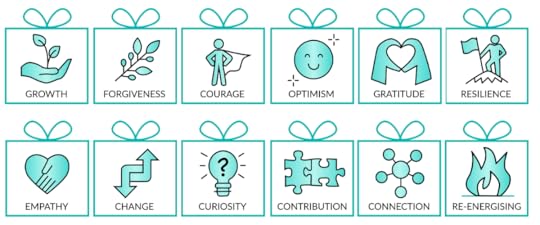
The Gift Mindset® is now a four-time award-winning book that has been translated and published in India, Vietnam and the Middle East. Available in hard copy, Kindle and audio and is the perfect team gift for 2025.
This book is for you…if you want to embrace challenges and successes and unwrap and share the gifts withinif you want to create a team and workplace culture of openness, connection and collaborationif you are caught up in the “doing” of life and need to reflect on the “gifts that have got you to where you are nowif you would like to build on key life skills and explore the 12 key gifts to incorporate these into your life and leadershipif you are ready to deepen your self-awareness and acceptance of life's lessons and share these to contribute to othersif you are ready to break down the barriers, you may face and reap the benefitsIf you are looking for a great way to ramp up the gift of connection, growth and gratitude within your workplace, then give your team the gift of the Gift Mindset® to kick-start 2025.
You can bulk order by emailing admin@reneegiarrusso.com

In this thought-provoking book, I teach you how to adopt the Gift Mindset to learn from these experiences and appreciate them as gifts. Many workplace cultures are transactional and performance-focused; adopting a Gift Mindset® culture promotes openness, connection and collaboration.
The stories, interviews, insights and practical tools can be easily applied to take your life, leadership and organisation to the next level.
Are you ready to unwrap your gifts? Please contact admin@reneegiarrusso.com for bulk orders.
Lead to be limitless…

October 17, 2024
How Are You Taking Leaders and Teams To The Next Level in 2025?
Well, here we are, almost at the end of 2024!
The year has flown by, and it has certainly been a big year here at RG Dynamics.
Working with many new clients, we have been in flow running our 12-month signature Limitless Leaders Programs globally, along with our Gift Mindset Culture and Communicating with Impact programs and our Cook & Connect Team Retreats.
We have also been rolling out our Emotional Intelligence Program to leaders and teams, which helps boost EQ skills in the new world of work. Our 1:1 Executive Coaching programs are among a few of the initiatives.
Being an eternal optimist running my business and contributing to others has been a strategy that has helped me on my healing journey after being diagnosed with breast cancer in April this year. I am clear of cancer now and still have many more treatments to go, but this has reinforced that when you have a strong mindset and do what lights you up, it can help you face adversity and any challenge.
My book Gift Mindset has also received another award this year and has been translated and published in India, Vietnam and the Middle East, which is exciting.
We are currently partnering with many of our clients to assist in mapping out development strategies for their leaders and teams in 2025.
For over 18 years, RG Dynamics has trained and coached thousands of leaders and executives in over 24 industries through our tailored transformational programs.
Our tailored programs target cohorts of leaders (emerging to senior) and teams within organisations that are seeking growth and an immersive, transformational experience where learnings stick and are brought to life back on the job.
Working across so many industries, we see common challenges and opportunities and can bring this depth of diverse experience to what we teach and share in your organisation.
We are known for our passion for learning, our thought-provoking content and the energy and commitment we bring to every program we deliver.
Our sole purpose in starting RG Dynamics in 2006 was to make workplaces exceptional places to work where people can thrive, be on purpose and contribute by doing the things that light them up. That mission hasn't changed and has only become stronger.
The world is experiencing a skills shortage and development needs to be an ongoing journey. Not a one-off “sugar hit” where everyone feels motivated and ready to take on the world, and then nothing happens on the other side.
Learning is an active process and teams and leaders need to focus on development now, more than ever.
We learn by doing. Only knowledge that is used sticks in your mind. – Dale CarnegieTo date, we have designed and delivered over 4,000 programs. It all starts by mapping out your needs and organisational objectives in line with your capability. We then provide ideas and program options validated by a pre-program diagnostic to solidify focus areas, content, and delivery mode.
Being a connector, I love being a room where possible, so we do everything to make that happen! On agreement, we design the program and usually run it as a series of workshops, group coaching and Mastermind sessions. These can be face-to-face or a mixture of face-to-face and virtual, which many of our clients prefer.
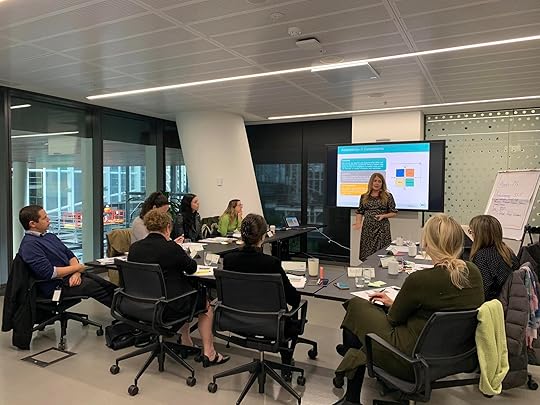
As you head into 2025, please see a few of our signature programs below.
For leaders:These programs take cohorts of leaders on a journey with topics and themes tailored to their objectives
Limitless Leaders Acceleration ProgramEmotional Intelligence ProgramPresenting with Impact ProgramCoaching for Performance ProgramFor Teams
Acceleration ProgramEmotional Intelligence ProgramPresenting with Impact ProgramCoaching for Performance ProgramFor TeamsThese programs include 1-2 workshops and group coaching follow-up to embed learnings.
Cook & Connect 1-Day Team Building RetreatLimitless TeamsMapping Motivation for Team SuccessCommunicating with ImpactOrganisation & CultureThese programs can be run to teams or town hall style and include the 12 soft Skills of a Gift Mindset and other topics relevant to organisational success.
The Gift Mindset Culture ProgramSkill Pills

Coaching and mentoring are a relationship built on trust and is a very unique one. All sessions are non-judgmental and confidential. We will collaborate with you on your success to assist you in achieving the objectives you set out before commencing the mentoring and coaching program.
Please remember that all our programs are tailored to individual needs, and we ensure our programs complement and align with existing internal frameworks.
How are you growing your leaders and teams for 2025?
If you’re curious about exploring these, please reach out for a chat directly with me.
Book a FREE discovery call here.
Here’s to 2025, a year of learning, growth and transformation!
Lead to be limitless.
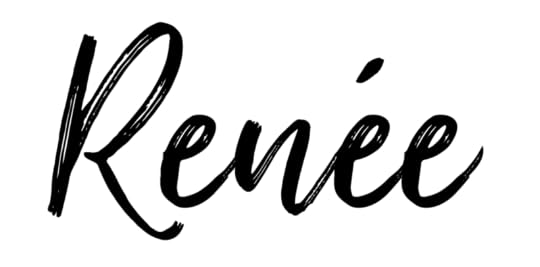
September 26, 2024
Identify and Eliminate Your Energy Vampires
For many years, I’ve been aware of and used the term Energy Vampires. These energetic distractions rear their ugly heads often when helping leaders ramp up productivity or teams looking at ways to minimise distraction. Energy vampires can certainly hinder our success.
In a nutshell, energy vampires are people or situations (which can include tasks, skills, and places) that drain our energy, leaving us feeling mentally, emotionally, and physically exhausted. They can appear in various aspects of our lives, subtly depleting our vitality and making it challenging to maintain a positive outlook and productivity. Understanding the different types of energy vampires in personal and professional settings is key to protecting our well-being.
When energy vampires appear, they can dim our vitality, making it difficult to maintain a positive, productive mindset.
Our energy is king, and knowing who and what drains us is key to taking ownership of our energy and our lives both in and out of the workplace.
Illuminate what you do want,
Eliminate what you don’t want
Let’s unwrap the most common types of energy vampires in both the workplace and personally:
Relational (People)Situational

In the workplace, certain people can drain your energy just as much as personal relationships.
A few include:
Unappreciative Colleagues: When our efforts go unrecognised by our colleagues and/or leaders, it can be demotivating. Over time, this lack of recognition can diminish our energy and engagement, making work feel like a burden and a place we don’t look forward to being at.Micromanaging Leaders: Leaders who challenge our every move, offer constant criticism, or undermine our autonomy can stifle our confidence and increase stress. This type of management style can lead to a feeling of helplessness and burnout.Toxic Coworkers: Colleagues who are overly competitive, manipulative, or engage in backstabbing can create a hostile work environment. Their actions, such as gossiping, taking credit for others’ work, or undermining teammates, can significantly drain your mental and emotional energy.SituationalCertain work-related situations can also act as energy vampires.
A few include:
Unrealistic Workloads: Unrealistic deadlines and a heavy workload with can lead to chronic stress and fatigue. When we’re constantly under pressure to perform, our energy reserves are quickly depleted, leaving little room for personal time and creativity. This can lead to burn out and resentment.Workplace Politics: Navigating a workplace brimming with politics, toxic culture or unclear expectations can be mentally exhausting. Constantly trying to stay ahead in such an environment can deplete your energy and morale.Low Work-Life Balance: When work prevents our ability to rest and recharge, it drains our energy both physically and mentally. Jobs that require excessive travel out of hours, demand long hours or intrude on personal time can lead to burnout.

In our personal life, energy vampires can take the form of certain individuals who negatively impact our emotional and mental state.
A few include:
Toxic Relationships: Relationships where there may be manipulation, control, or emotional abuse. Being involved with someone who undermines your self-worth or constantly brings you down leaving you feeling powerless and mentally fatigued.Negative Individuals: These are those people who constantly focus on the worst aspects of life, complain frequently and see the glass as half empty. Their negativity can be contagious, leaving you feeling drained and emotionally exhausted after interactions.Needy Friends or Family: These are individuals who consistently require your time, attention, or emotional support without offering the same in return. They often depend on you to solve their problems or provide comfort, which can lead to a one-sided relationship where your energy is continuously depleted. You give a lot but may not get the same back.Misaligned Values: Our values change as we change. Often our values are different or deeply conflict with the values of others who may have originally had the same values as us. The relationship will be different now as you value different things, and this can show up as conflict or simply not enjoying that person company as much. I call this the unspoken break-up.SituationalSituations in your personal life can also act as energy vampires. Remember, situations can include tasks, places and skills.
A few include:
Lack of Boundaries: Whenever we fail to set clear boundaries, this can result in situations where our time and energy are constantly demanded by others, leaving us feeling depleted and overwhelmed.Overcommitment: When we take on too many responsibilities (often because we don’t say No), can lead to burnout. When we spread ourselves too thin, we end up neglecting our own needs, leaving little energy for ourselves.Chronic Stress: Ongoing stress can come from personal circumstances. Factors such as career challenges, financial difficulties, health issues, or family conflicts can deplete our energy. This constant pressure wears down our mental and emotional reserves, making it difficult to cope with everyday challenges.Energy vampires can have a profound impact on our overall well-being. By identifying and addressing these drains in both your personal and professional life, you can protect your energy and maintain a healthier, more balanced life.
To shield yourself from these energy drains, look above at the key types of energy vampires both relational and situational, and identify what ones are showing up in your life in and out of work. Read the summary and flip the cation points and minimise exposure to that vampire as much as you can.
As always, I’d love to hear what has come up for you.
Lead to be limitless

September 22, 2024
The Energy Advantage – Maximise Your Personal Energy
Our energy is king.
Being our best energetic self is pivotal to our happiness, health and success.
Since childhood, I’ve always been highly energetic and attracted to people who emit a similar energy. Even through my current health journey fighting cancer, I have maintained my energy, which has baffled my doctors.
The definition of energy or what I call personal energy, is in the eye of the beholder. To me personal energy is within ourselves and refers to the internal capacity that fuels our physical, mental, and emotional activities. It's the vitality that enables us to perform tasks, think clearly, engage with others, and maintain our overall well-being.
Working with leaders and executive teams, I always notice that at this time of year, many feel burnt out, run down, and in need of a break that isn’t always attainable. Taking the time to reflect and refuel your energy is key, and it will be the topic of a series of articles, including this one.
Give the world the best of you,Not what’s left of you.What is the payoff of having high energy?
High energy levels can enhance productivity, focus, and creativity, allowing us to face and approach challenges effectively. It also supports emotional resilience, helping us manage stress and maintain positive relationships and interactions. Proper management of personal energy through balanced nutrition, exercise, sleep, and mental health practices ensures that we can sustain our energy across the five Dimensions.
Mental benefits:Enhanced Productivity & Focus: High energy boosts concentration, allowing us to accomplish tasks more efficiently and with creativity and grit.Stress Management: With more energy, we can be better equipped to handle stress and create and maintain a calm and positive mindset.Improved Mood: High energy contributes to feelings of happiness, motivation, and emotional stability, reducing the risk of depression and feeling flatSharpened Cognitive Function: Increased energy enhances memory, decision-making, and problem-solving abilities.Physical benefits:Greater Stamina and Tolerance: High energy levels support an active lifestyle, improving physical fitness and overall health.Stronger Immune System: With sufficient energy, our body can better fight off illnesses and recover quickly from injuries.Healthier Lifestyle: More energy encourages good habits such as regular exercise, balanced nutrition, and better sleep, promoting long-term well-being.Increased Vitality: High energy fosters a sense of vitality and enthusiasm for life, enabling us to engage in daily activities and pursue our goals fully.What is the cost of having low energy?Without sufficient energy, we can become fatigued, less motivated, and more prone to burnout, hindering our ability to live fulfilling and successful lives. Our energy can easily be depleted through illness, overwhelm, under or over connection with others or simply through a mindset and belief system that does not serve us. Self-awareness of knowing when we aren’t our energetic selves is vital for us to create change and avoid the below consequences of low energy.
Mental consequences:Reduced Focus and Productivity: Low energy impairs concentration and efficiency, making it harder to complete tasks in the time frame we normally would.Increased Stress: With less energy, stress management becomes difficult, leading to heightened anxiety, irritability and overwhelm.Mood Changes: Persistent low energy can contribute to depression, apathy, and feelings of hopelessness.Cognitive Decline: Chronic low energy can affect memory and decision-making skills over time.Physical consequences:Fatigue: Constant tiredness limits physical activity and reduces overall stamina.Weakened Immune System: Low energy can make the body more susceptible to illnesses and infections.Poor Physical Health: Lack of energy often leads to us not doing much. This can lead to a sedentary lifestyle, contributing to weight gain, muscle loss, and chronic conditions like heart disease and diabetes.Slower Recovery: Physical healing and recovery from illness or injury may be delayed due to inadequate energy reserves.We can harness our energy across these 5 Dimensions (5D energy):Emotional energy – How we feel.Mental energy – How we think.Social energy – How we connect.Physical energy – How we function.Spiritual energy – What we believe and nurture.Learning Jolt:Rate each of the 5 dimensions listed above 1-5 (1=low and 5=perfect)
Reflect on the 5 Dimensions of energy, check-in with each and look at where you feel energised and where you feel depleted.
Ask:What is one thing I can do to move the needle towards a 5/5?
When I was a 5/5 in this area what was different?
Knowing where our energy is at is key, and topping up has huge benefits for us personally and professionally.
I’d love to hear your thoughts on this article and what came up for you.
Lead to be limitless,




